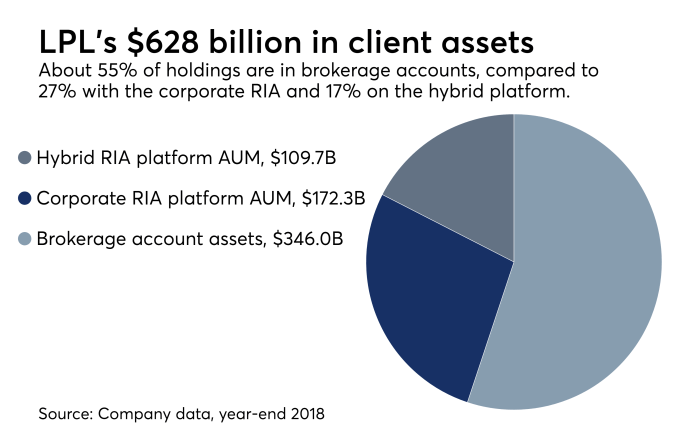By: Tobias Salinger, Mar. 12, 2019 /Financial-Planning.com/
A Northwestern Mutual team with $200 million in client assets bolted to join fellow alums at an independent practice that’s now added 10 advisors in 20 months.
Advisors John Mara and Shaun Feldeisen have launched the Boston office of Bleakley Financial, the hybrid RIA practice said last month. Fairfield, New Jersey-based Bleakley has seven other locations, $4.5 billion in client assets and 100 advisors and employees.

Bleakley had about $3 billion at the time it moved to LPL Financial in 2015 from Northwestern, coming over as an affiliated practice of Private Advisor Group, the No. 1 independent broker-dealer’s largest hybrid RIA and office of supervisory jurisdiction. Bleakley is also Private Advisor’s largest practice.
Cautioning that he doesn’t mean it as criticism, Bleakley Principal Andy Schwartz says the firm views Private Advisor and LPL as vendors in the same way they view custodians and software firms. Bleakley waited about three years after affiliating to ramp up its growth, he says.
The firm wanted to hone and refine its planning software tools, build its mobile app and infrastructure and hire a full-time recruiter and a chief investment officer, Schwartz says.
“The most important thing for us is that, if we’re going to bring somebody on, we have to be able to support them, we have to be able to improve their situation, because I don’t want any unhappy members,” he says. “We bring people in, they’re part of our family.”
Schwartz spent nearly three decades at Northwestern, where he was the top producer at the insurer’s BD for 20 years, he says. Mara and Feldeisen had been with Northwestern a combined 34 years before their Feb. 15 move to LPL and Private Advisor, according to FINRA BrokerCheck.
Northwestern spokeswoman Betsy Hoylman confirmed their departures and sent an emailed statement.
The insurance firm and independent BD “remains committed to recruiting, developing and retaining advisors interested in comprehensive planning to help clients achieve financial security through insurance and investments,” Hoylman said.
Mara and Feldeisen brought their staff of five employees to their new office in Downtown Boston. The “philosophy and process” of their former Northwestern colleagues made Bleakley stand out when the advisors considered a possible new affiliation, Mara says.
“We really needed to take a step back and evaluate the service offering we were able to provide,” he says, crediting Northwestern for its support of the practice’s expansion to its current size.
“They’re a premier insurance planning firm and they’re really focused on selling insurance,” Mara says. “We really wanted to make sure that we were operating as a true fiduciary and remove any conflicts of interest in terms of recommendations that were being made.”
Schwartz’s team tapped veteran business development and marketing executive Vincent Nauheimer to be managing director of business development in 2017. Chief Investment Officer Peter Boockvar, a frequent CNBC contributor, leads a 13-member research team after joining Bleakley last year.
“I’ve got a CIO who could be the CIO at any major institution,” Schwartz says, noting that Mara and Feldeisen’s team is the largest practice to join since Bleakley’s move to LPL. He predicts more teams will join in the near future. “We provide small-group love and care, but we do it at scale.”
Private Advisor’s roughly 20 large-enterprise contracts with custodians and technology vendors enable it to provide value to Bleakley through discounted rates as low as half the cost in some cases, according to Managing Director John Hyland and Chief Marketing Officer Abby Salameh.
The appeal of such offerings has helped Private Advisor Group expand to 640 advisors with $16.5 billion in assets under management, from only $615.5 million in 2011. LPL also allowed Bleakley to use multiple custodians for advisory assets when it joined Private Advisor in 2015, Salameh says.
“Traditionally and historically, LPL has really dissuaded advisors from custodying outside of the LPL platform,” she says. “They felt very strongly about having assets off platform, and they were a large enough group that LPL was willing to make that concession.”